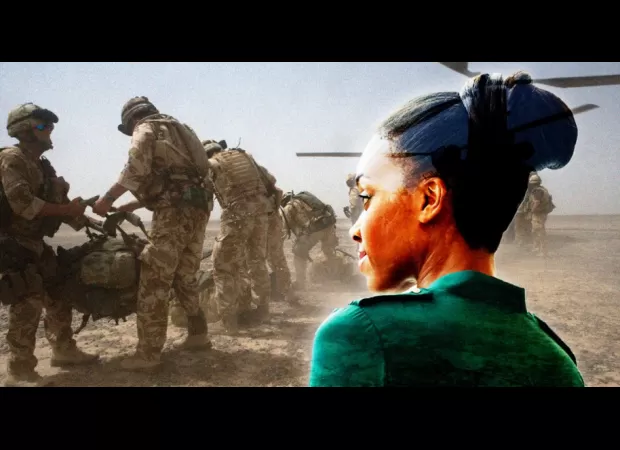Can women drafted into military service be sent to fight in combat?
Around 20 countries have laws allowing women to be conscripted, compared to dozens of countries for men.

The possibility of conscription being introduced in the UK has recently been brought to the forefront as top military officials warn of a potential all-out war between NATO and Russia. This has sparked questions about the role of women in such a scenario. Currently, there are only around 20 countries in the world that have laws allowing for conscription of women, while many others have mandatory national service programs. However, with the current global political climate, the UK may need to consider enlisting women in the armed forces as well.
The idea of conscription, also known as "the draft," was first introduced during World War I and II, but was later phased out in the 1960s. If a law were to be passed allowing for conscription in the UK, it would mean that women would be just as likely as men to be drafted. This raises questions about the roles and responsibilities that female conscripts would have, especially since it was only in 2018 that women in the British Army were given the same opportunities as their male counterparts to serve in combat roles.
One concern is whether female conscripts would be required to serve on the front lines of an active conflict. This is a particularly important question given that many countries, such as Norway and Israel, have already implemented national service programs that include women. In Israel, reports have shown that female soldiers serving in the war in Gaza are exclusively professional military personnel. It remains to be seen how the UK would handle this issue.
Another issue is the rights of those who are unwilling to serve in combat roles or to be drafted at all. Currently, professional soldiers in the British Armed Forces have the right to refuse combat duties if they develop a conscientious objection during their service. However, this right is not clearly defined in British law, leaving room for the government to override such claims in the event of conscription. This could potentially put the UK at odds with the United Nations' Declaration of Human Rights, which includes the right to freedom of thought, conscience, and religion.
In 2006, the UN Human Rights Committee determined that the right to conscientious objection is covered under the Declaration. However, this ruling was not unanimous and the right is not explicitly stated, which could lead to legal challenges in the event of conscription being introduced in the UK.
Overall, the idea of conscription in the UK is still uncertain and there are no guidelines for how it would be implemented in the 21st century. It is also unclear how non-combatant roles would be handled and what options would be available for those who wish to refuse military service altogether. While the government has stated that discussions about conscription are currently "off the table," the possibility of it being introduced in the future cannot be completely ruled out. This is a topic that will continue to be debated and monitored as the global political landscape evolves.






